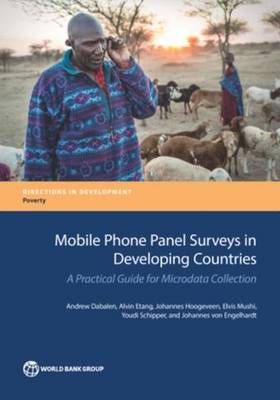Household survey data are very useful for monitoring living conditions of citizens of any country. In developing countries, a lot of this data are collected through "traditional" face-to-face household surveys. Due to the remote and dispersed nature of many populations in developing countries, but also because of the complex nature of many survey questionnaires, collection of timely welfare data has often proved expensive and logistically challenging. Yet, there is a need for faster, cheaper to collect, lighter, more nimble data collection methods to address data gaps between big household surveys. The recent proliferation of mobile phone networks has opened new possibilities. By combining baseline data from a traditional household survey with subsequent interviews of selected respondents using mobile phones, this facilitates welfare monitoring and opinion polling almost real time. The purpose of this handbook is to contribute to the development of the new field of mobile phone data collection in developing countries. The handbook documents how this innovative approach to data collection works, its advantages and challenges. The handbook draws primarily from the authors' first-hand experiences with mobile phone surveys in Africa and also benefits from experiences elsewhere. It is intended to serve a diverse audience including those involved in collecting (representative) data using mobile phones, and those using data collected through this approach. For those who will be implementing a mobile phone panel survey, the different chapters guide them through every stage of the implementation process. For potential users of the data collected via mobile phone technology, the handbook presents a new approach to data collection which they can use for monitoring programs and facilitate almost real time decision-making. A further purpose of this book is to contribute to the debate regarding the advantages of the method as well as the challenges associated with it.
- ISBN10 1464809046
- ISBN13 9781464809040
- Publish Date 25 July 2016
- Publish Status Active
- Publish Country US
- Imprint World Bank Publications
- Format Paperback
- Pages 201
- Language English
